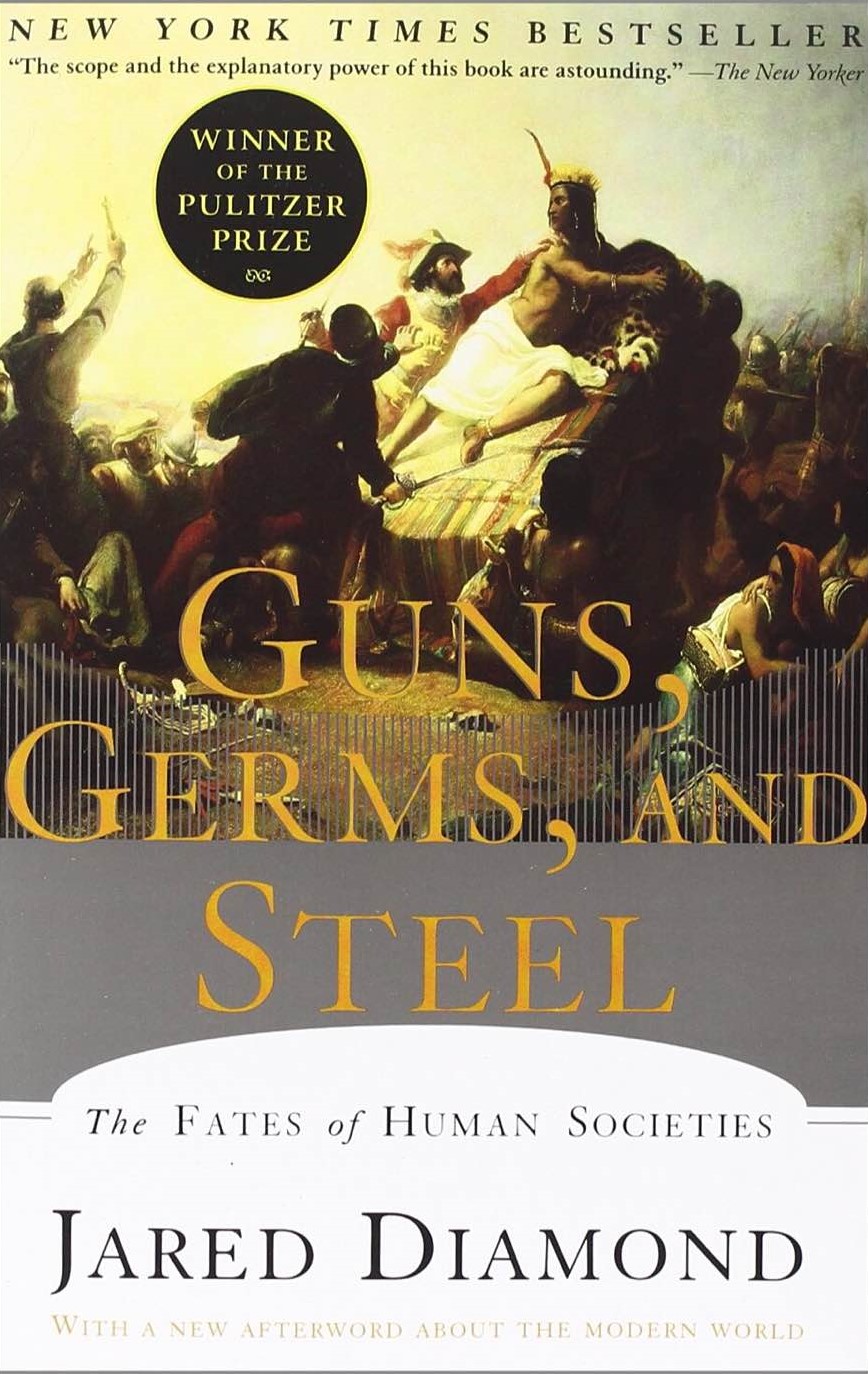
Guns, Germs, and Steel
Author: Jared Diamond Category: History Published: May 9, 1997 Language: English File Size: 1.3 MB Tags: Anthropology | Economics | Historical | History | Nonfiction | Politics | Science | Sociology | World history |Theme:
Guns, Germs, and Steel: The Fates of Human Societies by Jared Diamond, the main idea of the book is that geological factors influenced the development of human society. These factors include resources that may have been available to some societies at the time, but not others.
Summary:
It is about differences of human societies between the different continents over the last 11,000 years. Those differences are largely due to differences in the wild plant and animal species available for domestication, and in the continental axes.
Famous Quotes:
Much of human history has consisted of unequal conflicts between the haves and the have-nots.
Rhino-mounted Bantu shock troops could have overthrown the Roman Empire. It never happened.
The whole modern world has been shaped by lopsided outcomes.
Yes, world history is indeed such an onion!
People with blood group B or O have a greater resistance to smallpox than do people with blood group A.
Nearly half of all New Guinea languages have fewer than 500 speakers.
Or just inventing a new letter (as our medieval ancestors did when they created the new letters j, u, and w).
The anthropologist Claude Lévi-Strauss put it, ancient writing’s main function was to facilitate the enslavement of other human beings.
History followed different courses for different peoples because of differences among peoples’ environments, not because of biological differences among peoples themselves
With the rise of chiefdoms around 7,500 years ago, people had to learn, for the first time in history, how to encounter strangers regularly without attempting to kill them.
My two main conclusions are that technology develops cumulatively, rather than in isolated heroic acts, and that it finds most of its uses after it has been invented, rather than being invented to meet a foreseen need.
All human societies contain inventive people. It’s just that some environments provide more starting materials, and more favorable conditions for utilizing inventions, than do other environments.
Back
